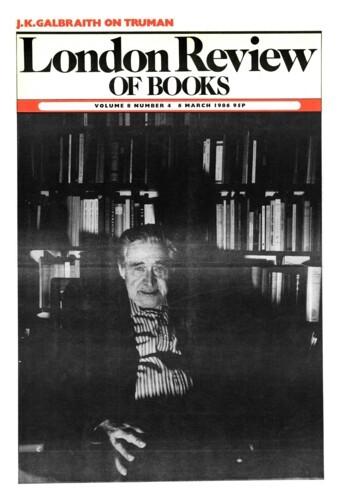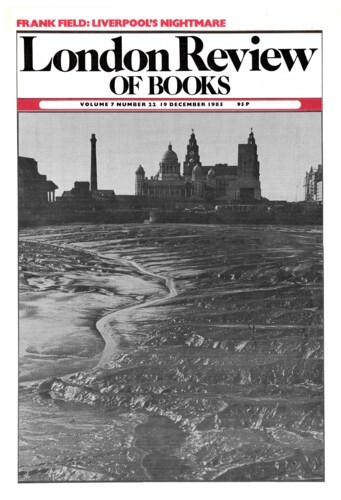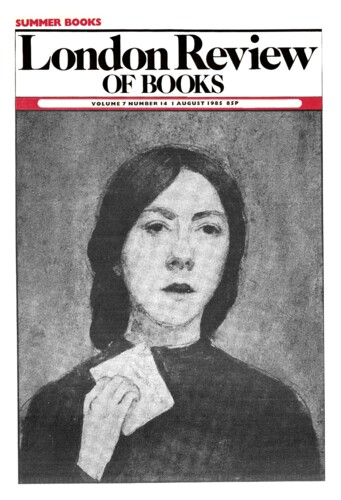Worlds Apart
Nicholas Spice, 6 March 1986
As a biology teacher at a large comprehensive school, my sister was given the job of taking the second-formers for sex education. To unblock inhibitions in the first lesson, she decided on a mild form of aversion therapy: covering the blackboard with taboo words, words normally out of bounds in the discourse between a teacher and her twelve-year-old pupils. She tried to include everything likely to embarrass them. But a small boy, anxious for the completeness of the inventory, put up his hand. ‘Please, miss,’ he mumbled, ‘you’ve missed something out.’ Scanning the shameless lexicon on the board and wracking her brains for obvious omissions, my sister asked the boy what he was thinking of, but no amount of persuasion would get him to say. After the lesson, when his peers were gone, he managed to tell her what he had in mind. ‘Breasts, miss,’ he hissed, ‘breasts’.





